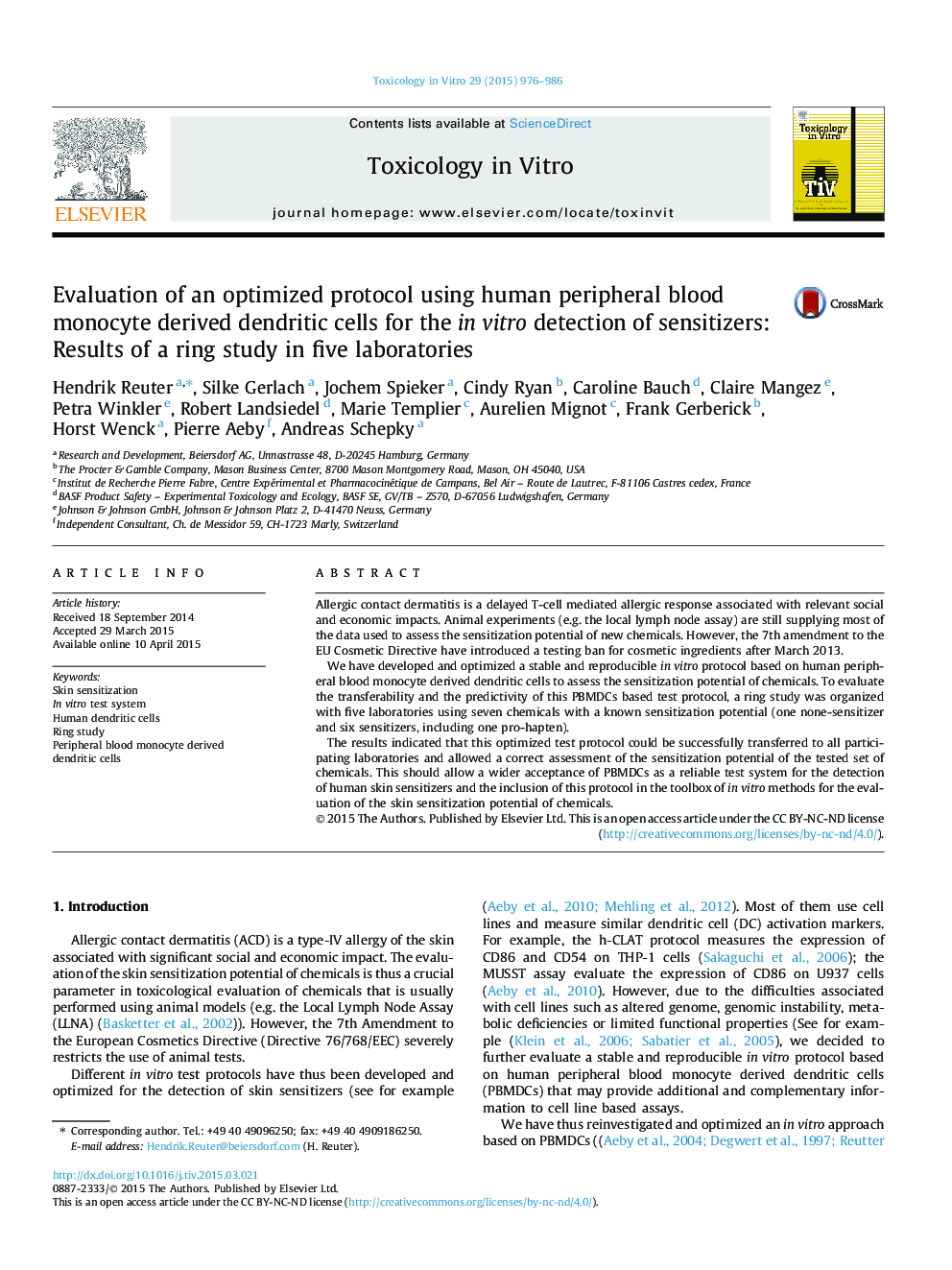| Article ID | Journal | Published Year | Pages | File Type |
|---|---|---|---|---|
| 5861678 | Toxicology in Vitro | 2015 | 11 Pages |
â¢Ring study in five laboratories evaluating the performance of an optimized in vitro test system.â¢In vitro test system based on peripheral blood monocyte derived dendritic cells.â¢Successful transfer of the test protocol to all participating laboratories.â¢Correct assessment of the sensitization potential of the tested set of chemicals.
Allergic contact dermatitis is a delayed T-cell mediated allergic response associated with relevant social and economic impacts. Animal experiments (e.g. the local lymph node assay) are still supplying most of the data used to assess the sensitization potential of new chemicals. However, the 7th amendment to the EU Cosmetic Directive have introduced a testing ban for cosmetic ingredients after March 2013.We have developed and optimized a stable and reproducible in vitro protocol based on human peripheral blood monocyte derived dendritic cells to assess the sensitization potential of chemicals. To evaluate the transferability and the predictivity of this PBMDCs based test protocol, a ring study was organized with five laboratories using seven chemicals with a known sensitization potential (one none-sensitizer and six sensitizers, including one pro-hapten).The results indicated that this optimized test protocol could be successfully transferred to all participating laboratories and allowed a correct assessment of the sensitization potential of the tested set of chemicals. This should allow a wider acceptance of PBMDCs as a reliable test system for the detection of human skin sensitizers and the inclusion of this protocol in the toolbox of in vitro methods for the evaluation of the skin sensitization potential of chemicals.
